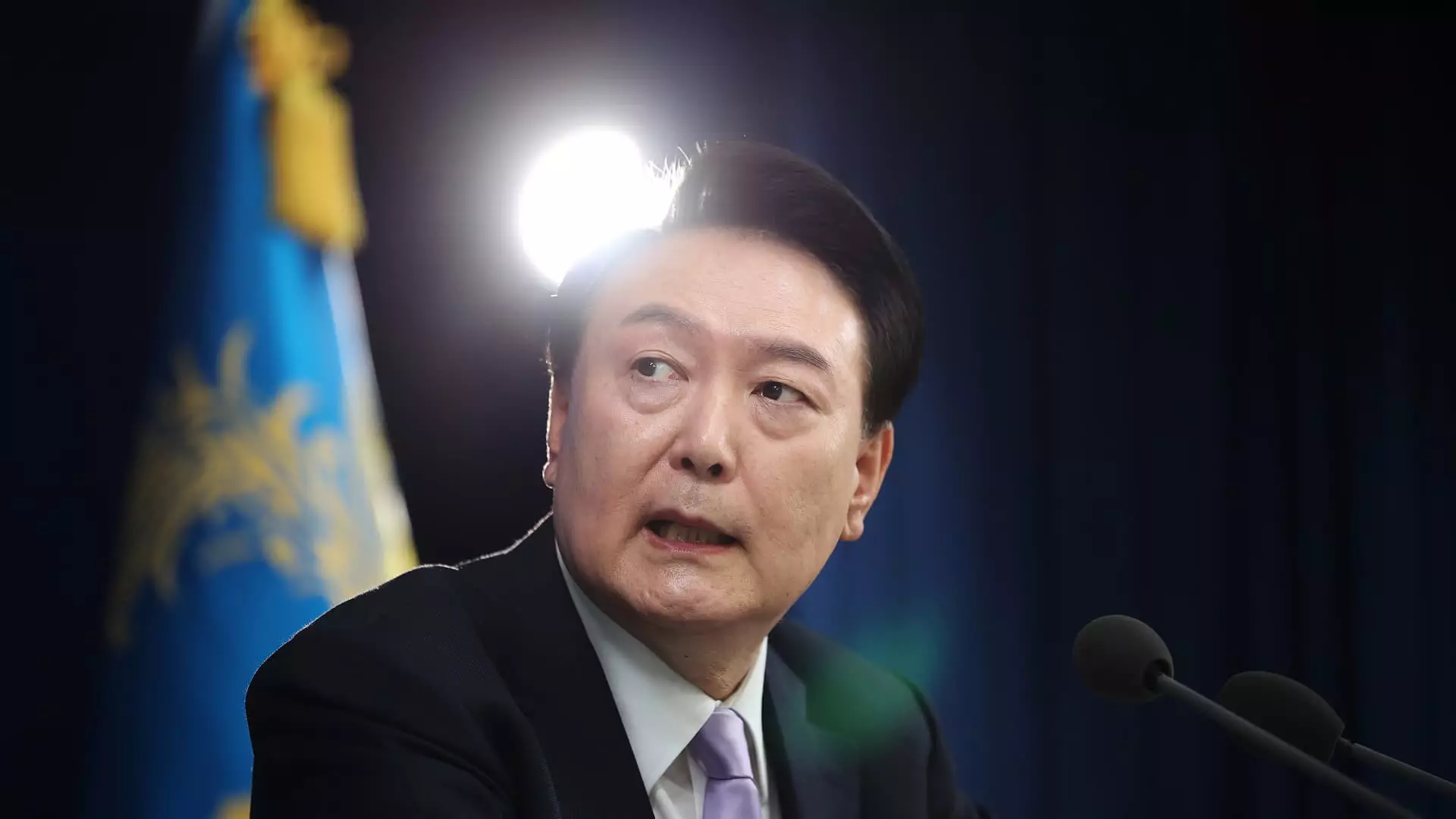South Korean President Yoon Suk Yeol has recently found himself in a precarious political situation, underscored by an impeachment motion stemming from his controversial attempt to impose martial law. This move became a focal point of contention, raising significant questions about his governance and the broader implications for the nation’s democracy. On Saturday, Yoon narrowly dodged an impeachment vote that could have resulted in his immediate ousting, largely due to a boycott by his ruling party, the People Power Party. While Yoon’s survival in the National Assembly is a temporary victory, it underscores the fragility of his presidency and the polarizing sentiments that accompany his leadership.
The impeachment motion was spearheaded by opposition politicians from the Democratic Party and required a two-thirds majority from the National Assembly, which comprises 300 members. However, the absence of allied lawmakers during the vote ultimately nullified the possibility of a successful impeachment. This event is a microcosm of the political struggle in South Korea, where opposition leaders have expressed their intent to revisit the motion, suggesting an ongoing confrontation that could reverberate through future parliamentary sessions. If the impeachment had been successful, it would have necessitated a presidential election within 60 days, illustrating the significant ramifications of such legislative actions.
Yoon’s attempt to invoke martial law marks the first such initiative since South Korea’s military coup in 1979, evoking deep-seated memories of authoritarian rule. His justification for this drastic measure was couched in the rhetoric of safeguarding the “constitutional order” and countering perceived threats from “pro-North Korean anti-state groups.” The president’s approval ratings have plummeted to a mere 19%, reflecting a broad discontent with his leadership. This political gambit not only elicited widespread public outcry but also transformed the dynamics of South Korea’s political landscape, further eroding trust in Yoon’s administration.
The fallout from Yoon’s martial law proposal has spurred protests across the nation, leading to a parliamentary resolution to disband the measure. Simultaneously, the financial markets responded with uncertainty, prompting the Financial Services Commission to prepare for possible interventions amounting to 50 trillion won, or approximately $35.22 billion, to stabilize fluctuating stock and bond markets. Analysts have indicated that the Korean won might face considerable volatility, accentuated by fundamental economic pressures rather than solely political instability. Notably, these developments have raised alarm bells regarding South Korea’s status as one of Asia’s strongest democracies, underscoring the global implications of its internal strife.
Future Challenges for Yoon Suk Yeol
The road ahead for Yoon lies fraught with challenges; calls for his suspension from office have emerged within his own party, reflecting deep concerns regarding his leadership style and decision-making capabilities. Moreover, the newly appointed Acting Defense Minister Kim Seon-ho has voiced his unwillingness to comply with any future attempts to impose martial law, illustrating a growing rift within the government apparatus. In a recent public address, Yoon attempted to rally support by apologizing to the citizens for the confusion his actions had caused, a move aimed at restoring public confidence but one that may fall short in light of ongoing tensions.
President Yoon Suk Yeol’s recent experience with an impeachment motion and the martial law debacle represents a crucial juncture for South Korea’s democratic integrity. The country’s history of political turmoil juxtaposed against its contemporary democratic ideals presents a precarious balancing act for Yoon and his administration. As political opponents rally their forces and public dissatisfaction looms large, the immediate future will be critical in determining whether Yoon can stabilize his presidency and navigate through these turbulent waters or whether South Korea will once again face a political reckoning that could reshape its democratic landscape. The outcomes of these events will undoubtedly influence the nation’s political trajectory and impact its standing on the global stage.


Leave a Reply